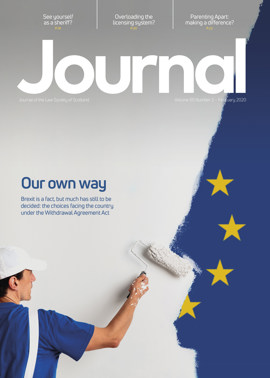Equality in parenting too?
An article in a recent edition of the Economist (9 January 2020) highlighted the possible reasons why lesbian couples are statistically more likely to divorce than gay couples. The article draws comparisons between heterosexual divorces too, concluding that regardless of the gender constitution of the marriage, individuals tend to present similar issues to divorce lawyers.
One of the most powerful aspects of advances in assisted conception techniques is that same sex couples now have the ability to create a family. Two women or two men can now have children. Science, and a greater awareness and acceptance of what is possible using donor gametes, and/or surrogacy, has widened the number of family creation options available to couples. Equality reigns – or does it?
When one becomes two
When a couple separates, two family units are formed where once there was one. Parents who were used to living with their children, seeing them every day, have to face the prospect of alternative care arrangements which might mean that they see their children less often, for shorter periods of time. In the majority of cases separating parents are worried that the inherent quality of the parent/child relationship will alter.
Developments in medical science have brought yet more complex issues into play. Issues can arise about ownership of embryos stored in fertility clinics. Questions can arise about whether the parent whose eggs or sperm were used to create the children has any greater claim to residence of a child on separation. Such issues are arising with greater regularity. Given that fertility clinics report a rise in the number of same sex couples seeking treatment, the future is likely to hold an increase in the incidence of cases in which gender roles and biology are debated.
Arguably the legislative framework needs to evolve to facilitate parity of parenting input on separation. Whilst the legal framework enables family units to be created on an equal basis, the legal system has not yet evolved sufficiently to ensure that the resolution of disputes over the care arrangements for the children is approached in the same way, regardless of whether the parents are of the same gender or different genders.
In Scotland, the legislative framework setting out who has parental rights and responsibilities and how child-related disputes can be approached is found in the Children (Scotland) Act 1995. In the UK, the legislative framework setting out definitions of parenthood in assisted conception is found in the Human Fertilisation and Embryology Act 1990 (as amended).
There is no definitive interface between the two Acts, although some of the terminology is similar. Reference is made to the welfare of the child in both. Clinicians have a duty to consider the welfare of a child born as a result of fertility treatment in accepting patients for treatment. The best interests of the child will govern decisions about care arrangements on separation. How is the welfare test applied in cases in which a same sex parent seeks a residence or contact order? Does it matter?
Should shared care rub out gender lines?
Arguably it does. Scotland is about to herald what could be a new dawn in child law. The Children (Scotland) Bill is being widely debated as I write. One of the more apparently controversial aspects is whether or not the new legislation ought to replace the concepts of "residence" and "contact" with a presumption of shared care, which can be displaced in favour of one parent on the basis of a child welfare test.
On one view, such a presumption would create a greater degree of equality between parents. There would be no "primary carer" or "resident parent", terms which are frequently used in family courts but which arguably carry gender aligned connotations of motherhood and paternity. It matters because the notion of there being a "resident parent" in practice often equates to one parent having a greater degree of input to the everyday parenting decisions which must be made, but also the major decisions which need to be made and which will shape a child's future. These roles still do often follow gender lines. Arguments around parental alienation and the marginalisation of one parent are commonly heard.
The debate is an important one to be had, and it is timely. Shared Parenting Scotland (the charity formerly known as Families Need Fathers) recognises that modern family units come in different forms, arguing that the legislative framework needs to adapt in order to recognise the realities of our modern society and the rise in same sex family units.
From my own experience as a family and child law practitioner, it seems to me essential that all those involved in working with children on separation recognise that children need a legal framework which supports their having a meaningful relationship with both parents post-separation, regardless of gender.
Societal shifts have meant that more fathers are playing a more active role in the day-to-day care of children. The debate about shared care has been in the public arena for many years now. Future years are, in my view, likely to hold a widening of the debate to include discussion around whether gender roles have a place in the family courts at all.
The statistics around same sex divorce and family creation suggest that the constitution of modern family units continues to evolve. It remains to be seen whether our legal system will keep pace.






